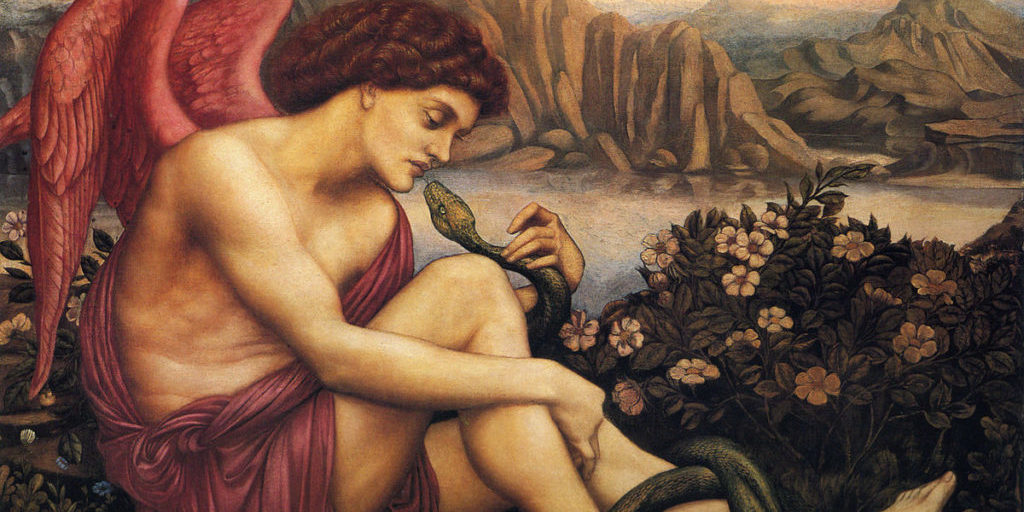
The Coming Deception: Reflections on 2 Thessalonians 2
2 Thessalonians 2 warns us of a final outbreak of evil in the end times, just prior to the return of Christ. Revelation 13-14, I think, present the same but in vivid imagery, and of course there are other passages – in Daniel, for example. But the apostle Paul’s depiction of that time period is particularly straight-forward and sobering. In all three passages (2Thes.2; 1Jn.2:18; Rev.13ff) there is an obvious “now and not yet” aspect to both the Antichrist and the corresponding time of evil. Click To Tweet
His stated intent is to assure the Thessalonians that they have not missed the Day of the Lord. They are assured of this by the simple fact that before that Day there will be a time of widespread rebellion and the revelation of the man of lawlessness, something they have yet to witness. I won’t take time to defend it here but will just mention that because of various common biblical connections, including Daniel, I take as Paul’s “man of lawlessness” to be the same figure as John’s “Antichrist” (1Jn.2:18, etc.) and “Beast from the sea” (Rev.13ff).
Now and Not Yet
It’s important to note that in all three passages (2Thes.2; 1Jn.2:18; Rev.13ff) there is an obvious “now and not yet” aspect to both the Antichrist and the corresponding time of evil. Paul is explicit: “the mystery of iniquity is already at work.” In 1 John, the Antichrist “is coming” and is already here. And in Revelation the Beast recovers from a mortal wound. Antichrist is both now and not yet.
He appears here and there throughout this age and with multiple names, and he will appear climatically in the end. Throughout this age of inaugurated “tribulation” (Matt.24:9) he casts a long shadow ahead of his arrival, and we would be wise to recognize the foreshadowing of that evil day in the increasing evil of our own day. This much I think is explicit in the biblical text.
One aspect of this coming time of “rebellion” or “apostasy” that Paul mentions has always intrigued me. He says in verse 11 that God will send a “strong delusion” because of which the world at large will “believe what is false.” This seems to be the driving factor behind the rebellion – they are deluded, believing what is false.
A Great Delusion
God will send a “strong delusion” because of which the world at large will “believe what is false.” Click To Tweet “Believe what is false” – I wonder what that would look like. Of course on one level the world at large has always believed much that is false. The world does not recognize the glory of God, it rejects Christ as the unique, saving Son of God, and so on. But Paul seems to indicate something further. And I have often wondered what that will look like for the world at large to believe “the lie” wholesale. What kind of thought-structures – “plausibility structures” – will have to be in place for that to happen? I’m no prophet, and I confess that I don’t know what that will look like, but here are some possibilities – true I think at least in the “now but not yet” sense.
- Believing that our vast universe with all its intricacies and inter-dependent systems and laws was not planned and is not the product of an intelligent mind but just the result of mere chance.
- Believing that man himself is just a more mature animal and consists only of so much physical material, that even the mind functions only in terms of certain chemical reactions, and that there is nothing about man that reflects anything “more” than so much material substance.
- Believing that God is whatever you imagine him or her to be, that you can worship him or her however you determine, that God is what we make him to be, and that he requires only what we say he requires, and that all religions are of equal value. Still, we will refer to him as “God” and consider ourselves devout, even though in all this it is we who have set the agenda and stipulated the terms.
- Believing that there is no such thing as “truth” (even though this assertion must be acknowledged as true), and that lies are true if told in support of the cause in which you believe.
- Believing that history re-written to conform to current ideals is still history.
- Believing that morals, values, and ethical norms are individually determined (even though everyone requires that their “rights” not be violated), that “good” and “bad” are individually defined.
- Believing that despite the rise of crime, violence, international tensions, and other such societal ills, humanity is basically good.
- Believing that killing an animal or destroying a given bird egg is wrong, but killing an unborn child – or even a baby who has survived abortion – is right.
- Believing that gender is fluid and self-determined, that “man” and “woman” are just societal constructs dissociated from biological reality, that a “male” can be a woman if he so determines, and that the rest of us should recognize this as normal.
- Believing that homosexual union is normal; humanity functioning in its normal state.
- Believing that “tolerance” means approval and that we must tolerate/approve of any evil proposed (even though those demanding this new tolerance may hate and abuse those who disagree with them).
- Believing that “justice” and “injustice” can be defined apart from individual responsibility.
- Believing that a person’s skin color has more significance than his/her character.
- Believing that certain failed economic systems are essential to both freedom and prosperity.
I suppose we could make many more guesses. All this sounds to me like utter confusion, and I wonder what effects it must have on the human mind to believe what is so obviously false. And I wonder what effects it must have on a society that embraces such self-contradictions. But it seems that “the man of lawlessness” will succeed via just these kinds of deceptions, enforced perhaps by a totalitarian kind of rule.
I believe the apostle Paul when he tells us that such a day will come. I also believe him when he tells us that “the mystery of iniquity is already at work.”

